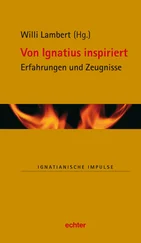Ignatius Donnelly - Antediluvian world
Здесь есть возможность читать онлайн «Ignatius Donnelly - Antediluvian world» весь текст электронной книги совершенно бесплатно (целиком полную версию без сокращений). В некоторых случаях можно слушать аудио, скачать через торрент в формате fb2 и присутствует краткое содержание. Жанр: Старинная литература, на русском языке. Описание произведения, (предисловие) а так же отзывы посетителей доступны на портале библиотеки ЛибКат.
- Название:Antediluvian world
- Автор:
- Жанр:
- Год:неизвестен
- ISBN:нет данных
- Рейтинг книги:5 / 5. Голосов: 1
-
Избранное:Добавить в избранное
- Отзывы:
-
Ваша оценка:
- 100
- 1
- 2
- 3
- 4
- 5
Antediluvian world: краткое содержание, описание и аннотация
Предлагаем к чтению аннотацию, описание, краткое содержание или предисловие (зависит от того, что написал сам автор книги «Antediluvian world»). Если вы не нашли необходимую информацию о книге — напишите в комментариях, мы постараемся отыскать её.
Antediluvian world — читать онлайн бесплатно полную книгу (весь текст) целиком
Ниже представлен текст книги, разбитый по страницам. Система сохранения места последней прочитанной страницы, позволяет с удобством читать онлайн бесплатно книгу «Antediluvian world», без необходимости каждый раз заново искать на чём Вы остановились. Поставьте закладку, и сможете в любой момент перейти на страницу, на которой закончили чтение.
Интервал:
Закладка:
“One morning water for washing was brought to Manu, and when he had washed himself a fish remained in his hands, and it addressed these words to him: ‘Protect me, and I will save thee.’ ‘From what wilt thou save me?’ ‘A deluge will sweep all creatures away; it is from that I will save thee.’ ‘How shall I protect thee?’ The fish replied, ‘While we are small we run great dangers, for fish swallow fish. Keep me at first in a vase; when I become too large for it, dig a basin to put me into.
When I shall have grown still more, throw me into the ocean; then I shall be preserved from destruction.’ Soon it grew a large fish. It said to Mann, ‘The very year I shall have reached my full growth the Deluge will happen. Then build a vessel and worship me. When the waters rise, enter the vessel, and I will save thee.’
“After keeping him thus, Mann carried the fish to the sea. In the year indicated Mann built a vessel and worshipped the fish. And when the Deluge came he entered the vessel. Then the fish came swimming up to him, and Mann fastened the cable of the ship to the horn of the fish, by which means the latter made it pass over the Mountain of the North. The fish said, ‘I have saved thee; fasten the vessel to a tree, that the water may not sweep it away while thou art on the mountain; and in proportion as the waters decrease thou shalt descend.’ Manu descended with the waters, and this is what is called the descent of Manu on the Mountain of the North. The Deluge had carried away all creatures, and Mann remained alone.”
There is another form of the Hindoo legend in the Puranas. Lenormant says:
“We must also ‘remark that in the Puranas it is no longer Manu Vaivasata that the divine fish saves from the Deluge, but a different personage, the King of the Dastas—i. e., fisher—Satyravata,’ the man who loves justice and truth,’ strikingly corresponding to the Chaldean Khasisatra.
Nor is the Puranic version of the Legend of the Deluge to be despised, though it be of recent date, and full of fantastic and often puerile details. In certain aspects it is less Aryanized than that of Brahmana or than the Mahabharata; and, above all, it gives some circumstances omitted in these earlier versions, which must yet have belonged to the original foundation, since they appear in the Babylonian legend; a circumstance preserved, no doubt, by the oral tradition—popular, and not Brahmanic—with which the Puranas are so deeply imbued. This has already been observed by Pictet, who lays due stress on the following passage of the Bhagavata-Purana: ‘In seven days,’ said Vishnu to Satyravata, ‘the three worlds shall be submerged.’ There is nothing like this in the Brahmana nor the Mahabharata, but in Genesis the Lord says to Noah, ‘Yet seven days and I will cause it to rain upon the earth;’
and a little farther we read, ‘After seven days the waters of the flood were upon the earth.’. . . Nor must we pay less attention to the directions given by the fish-god to Satyravata for the placing of the sacred Scriptures in a safe place, in order to preserve them from Hayagriva, a marine horse dwelling in the abyss. . . . We recognize in it, under an Indian garb, the very tradition of the interment of the sacred writings at Sippara by Khasisatra, such as we have seen it in the fragment of Berosus.”
The references to “the three worlds” and the “fish-god” in these legends point to Atlantis. The “three worlds” probably refers to the great empire of Atlantis, described by Plato, to wit, the western continent, America, the eastern continent, Europe and Africa, considered as one, and the island of Atlantis. As we have seen, Poseidon, the founder of the civilization of Atlantis, is identical with Neptune, who is always represented riding a dolphin, bearing a trident, or three-pronged symbol, in his hand, emblematical probably of the triple kingdom. He is thus a sea-god, or fish-god, and he comes to save the representative of his country.
And we have also a new and singular form of the legend in the following.
Lenormant says:
“Among the Iranians, in the sacred books containing the fundamental Zoroastrian doctrines, and dating very far back, we meet with a tradition which must assuredly be looked upon as a variety of that of the Deluge, though possessing a special character, and diverging in some essential particulars from those we have been examining. It relates how Yima, who, in the original and primitive conception, was the father of the human race, was warned by Ahuramazda, the good deity, of the earth being about to be devastated by a flood. The god ordered Yima to construct a refuge, a square garden, vara, protected by an enclosure, and to cause the germs of men, beasts, and plants to enter it, in order to escape annihilation. Accordingly, when the inundation occurred, the garden of Yima, with all that it contained, was alone spared, and the message of safety was brought thither by the bird Karshipta, the envoy of Ahuramazda.” (“Vendudid,” vol. ii., p. 46.) This clearly signifies that, prior to the destruction of Atlantis, a colony had been sent out to some neighboring country. These emigrants built a walled town, and brought to it the grains and domestic animals of the mother country; and when the island of Atlantis sunk in the ocean, a messenger brought the terrible tidings to them in a ship.
“The Greeks had two principal legends as to the cataclysm by which primitive humanity was destroyed. The first was connected with the name of Ogyges, the most ancient of the kings of Boeotia or Attica—a quite mythical personage, lost in the night of ages, his very name seemingly derived from one signifying deluge in Aryan idioms, in Sanscrit Angha.
It is said that in his time the whole land was covered by a flood, whose waters reached the sky, and from which he, together with some companions, escaped in a vessel.
“The second tradition is the Thessalian legend of Deucalion. Zeus having worked to destroy the men of the age of bronze, with whose crimes he was wroth, Deucalion, by the advice of Prometheus, his father, constructed a coffer, in which he took refuge with his wife, Pyrrha. The Deluge came; the chest, or coffer, floated at the mercy of the waves for nine days and nine nights, and was finally stranded on Mount Parnassus. Deucalion and Pyrrha leave it, offer sacrifice, and, according to the command of Zeus, repeople the world by throwing behind them ‘the bones of the earth’—namely, stones, which change into men. This Deluge of Deucalion is, in Grecian tradition, what most resembles a universal deluge. Many authors affirm that it extended to the whole earth, and that the whole human race perished. At Athens, in memory of the event, and to appease the manes of its victims, a ceremony called Hydrophoria was observed, having so close a resemblance to that in use at Hierapolis, in Syria, that we can hardly fail to look upon it as a Syro-Phoenician importation, and the result of an assimilation established in remote antiquity between the Deluge of Deucalion and that of Khasisatra, as described by the author of the treatise ‘On the Syrian Goddess.’ Close to the temple of the Olympian Zeus a fissure in the soil was shown, in length but one cubit, through which it was said the waters of the Deluge had been swallowed up. Thus, every year, on the third day of the festival of the Anthesteria, a day of mourning consecrated to the dead—that is, on the thirteenth of the month of Anthesterion, toward the beginning of March-it was customary, as at Bambyce, to pour water into the fissure, together with flour mixed with honey, poured also into the trench dug to the west of the tomb, in the funeral sacrifices of the Athenians.”
In this legend, also, there are passages which point to Atlantis. We will see hereafter that the Greek god Zeus was one of the kings of Atlantis. “The men of the age of bronze” indicates the civilization of the doomed people; they were the great metallurgists of their day, who, as we will see, were probably the source of the great number of implements and weapons of bronze found all over Europe. Here, also, while no length of time is assigned to the duration of the storm, we find that the ark floated but nine days and nights. Noah was one year and ten days in the ark, Khasisatra was not half that time, while Deucalion was afloat only nine days.
Читать дальшеИнтервал:
Закладка:
Похожие книги на «Antediluvian world»
Представляем Вашему вниманию похожие книги на «Antediluvian world» списком для выбора. Мы отобрали схожую по названию и смыслу литературу в надежде предоставить читателям больше вариантов отыскать новые, интересные, ещё непрочитанные произведения.
Обсуждение, отзывы о книге «Antediluvian world» и просто собственные мнения читателей. Оставьте ваши комментарии, напишите, что Вы думаете о произведении, его смысле или главных героях. Укажите что конкретно понравилось, а что нет, и почему Вы так считаете.












